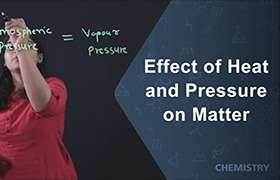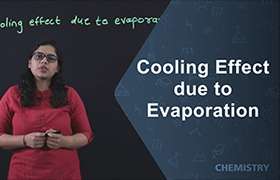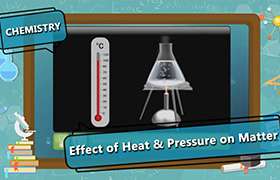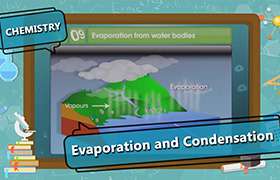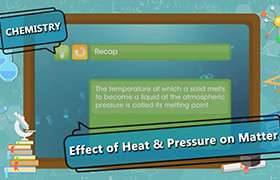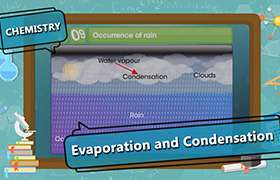CBSE Class 9 Answered
Objective: Boiling water by cooling it
Apparatus: A heater, a conical flask with tightly fitting stopper
Procedure:
- Take some water in a conical flask approximate half volume.
- Heat the flask on a heater and allow it to boil for about 5 minutes.
- Turn off the heater.
- And now carefully hold the flask from its neck and put stopper in it as early as possible.
- The water in the flask stops boiling because no more heat is supplied.
- Put some cold water on the flask particularly on the empty portion.
- You will observe the water starts boiling in the flask.
- Wait for about a minute and observe the boiling of the water in the flask stops.
- Try again putting cold water on the flask.
- The water in the flask again starts boiling and we can repeat this activity several times.
So why does water boil when cold water is poured on the flask?
When we initially boiled the water without any stopper the vapour generated during boiling replaced the air and there was entirely only the vapour above the water in the flask.
So at this level we fitted the stopper tightly and closed the possibility of air entering the flask.
The water cooled down a little by this time with no question of boiling.
Also at the boiling temperature water boils only when heat is supplied to it which converts water to vapour.
Then we poured cold water at this level.
The vapour condensed to water because of cooling due to cold water.
Over here it reduces the pressure inside the flask.
At such a low pressure, the boiling point of water is quite low and the present temperature of water is much larger than this new boiling point.
As a result water starts boiling and coverts to vapour.
Hence the pressure inside again increases due to this vapour.
So the boiling point increases and the water stops boiling at a certain level.
And if we put cold water again the same process repeats and water boils.

